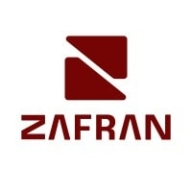


Check Point CloudGuard CNAPP and Red Hat OpenShift Container Platform compete in the cloud security and management space. CloudGuard focuses on security intelligence, while OpenShift offers stronger Kubernetes management. OpenShift is preferred for its comprehensive Kubernetes capabilities.
Features: Check Point CloudGuard CNAPP highlights security intelligence, threat prevention, and IAM role control, aiding organizations in cloud governance and security visualization. Red Hat OpenShift Container Platform stands out with comprehensive Kubernetes management, scalability, and developer-friendly tools, including automated deployment pipelines and integrated dev environments, making it ideal for enterprise applications.
Room for Improvement: Check Point CloudGuard CNAPP should improve integration with third-party tools, reporting granularity, and on-premises support. Enhanced automation and integration capabilities are desired. Red Hat OpenShift Container Platform could streamline its setup process and improve both documentation and cluster management complexity. Better integration and cost efficiencies could make it more accessible for smaller businesses.
Ease of Deployment and Customer Service: Check Point CloudGuard CNAPP is easy to integrate with public clouds, with generally responsive customer service, though technical support knowledge could be improved. Red Hat OpenShift's comprehensive infrastructure makes deployment complex, but it offers flexible options like on-premises and hybrid cloud. Professional technical support is provided but can be challenging due to setup and resource demands, though its enterprise presence ensures robust support.
Pricing and ROI: Check Point CloudGuard CNAPP provides a flexible asset-based licensing model, seen as cost-effective for large cloud uses but pricey for smaller enterprises, with ROI linked to security enhancements. Red Hat OpenShift Container Platform is priced at an enterprise level for its advanced capabilities, better suited for large organizations, with costs based on resource consumption, potentially limiting for smaller setups. Both platforms demonstrate ROI through efficiency gains, with CloudGuard emphasizing risk reduction and OpenShift focusing on development improvements.
| Product | Market Share (%) |
|---|---|
| Check Point CloudGuard CNAPP | 1.4% |
| Wiz | 10.6% |
| Tenable Nessus | 7.4% |
| Other | 80.6% |
| Product | Market Share (%) |
|---|---|
| Red Hat OpenShift Container Platform | 19.5% |
| Amazon EKS | 11.9% |
| VMware Tanzu Platform | 11.8% |
| Other | 56.8% |



| Company Size | Count |
|---|---|
| Small Business | 54 |
| Midsize Enterprise | 17 |
| Large Enterprise | 57 |
| Company Size | Count |
|---|---|
| Small Business | 14 |
| Midsize Enterprise | 4 |
| Large Enterprise | 39 |
Zafran Security integrates with existing security tools to identify and mitigate vulnerabilities effectively, proving that most critical vulnerabilities are not exploitable, optimizing threat management.
Zafran Security introduces an innovative operating model for managing security threats and vulnerabilities. By leveraging the threat exposure management platform, it pinpoints and prioritizes exploitable vulnerabilities, reducing risk through immediate remediation. This platform enhances your hybrid cloud security by normalizing vulnerability signals and integrating specific IT context data, such as CVE runtime presence and internet asset reachability, into its analysis. No longer reliant on patch windows, Zafran Security allows you to manage risks actively.
What are the key features of Zafran Security?
What benefits can users expect from Zafran Security?
In industries where security is paramount, such as finance and healthcare, Zafran Security provides invaluable protection by ensuring that only exploitable vulnerabilities are addressed. It allows entities to maintain robust security measures while allocating resources efficiently, fitting seamlessly into existing security strategies.
Check Point CloudGuard CNAPP offers comprehensive cloud security with features like dynamic access control, asset protection, and compliance checks, tailored for organizations seeking enhanced governance across AWS, Azure, and GCP platforms.
Check Point CloudGuard CNAPP provides robust capabilities, including centralized firewall management, IAM scanning, and real-time visibility. Its strengths lie in predictive visualization, threat intelligence, and auto-remediation, making it a valuable tool for risk mitigation and compliance management. The platform's integration and responsiveness enhance cloud security, ensuring alignment with industry standards and effective threat protection.
What are the key features of Check Point CloudGuard CNAPP?Organizations in finance, healthcare, and retail frequently implement Check Point CloudGuard CNAPP for compliance and security across cloud environments. It assists with workload protection, threat detection, and regulatory obligation fulfillment, proving effective for securing applications and monitoring API interactions.
Red Hat® OpenShift® offers a consistent hybrid cloud foundation for building and scaling containerized applications. Benefit from streamlined platform installation and upgrades from one of the enterprise Kubernetes leaders.
We monitor all Vulnerability Management reviews to prevent fraudulent reviews and keep review quality high. We do not post reviews by company employees or direct competitors. We validate each review for authenticity via cross-reference with LinkedIn, and personal follow-up with the reviewer when necessary.